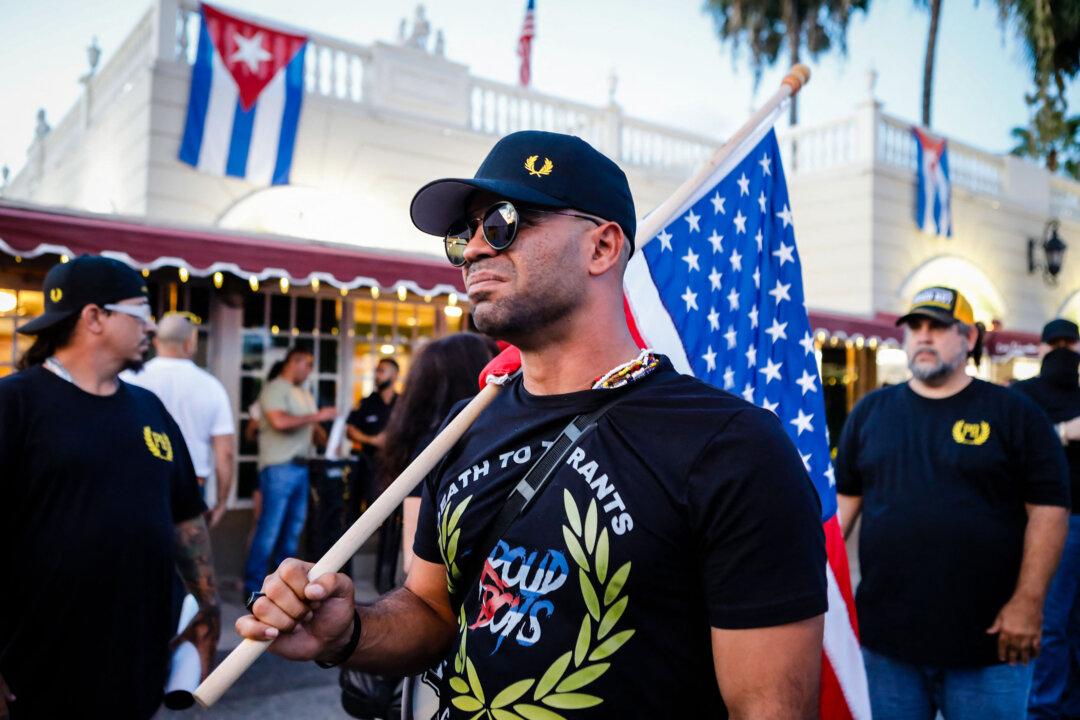Prosecutors are seeking multi-decade-long jail terms for former Proud Boys’ leader Enrique Tarrio and his associates for their alleged role in the Jan. 6 breach, making it the longest punishment related to the incident if the court consents.
“The scope of the defendants’ conspiracy is vast. The defendants organized and directed a force of nearly 200 to attack the heart of our democracy,” said the sentencing memo (pdf) submitted by the Department of Justice (DOJ) prosecutors at the U.S. District Court for the District of Columbia on Thursday. “The government’s evidence showed that all five defendants were motivated to use force to stop the certification proceedings in order to keep former President Donald J. Trump in power.”





